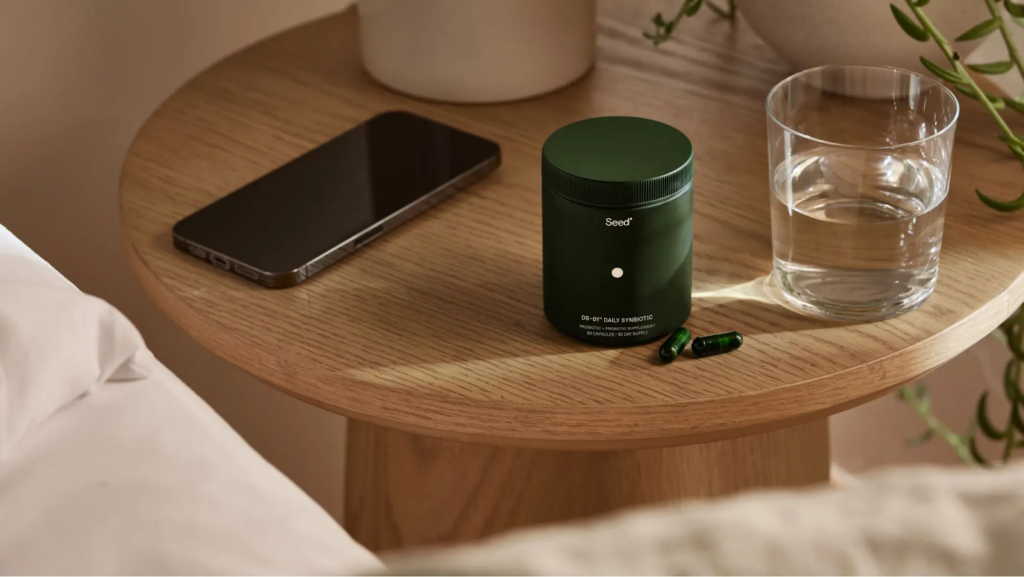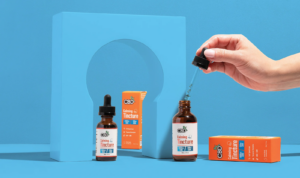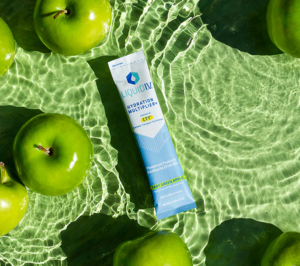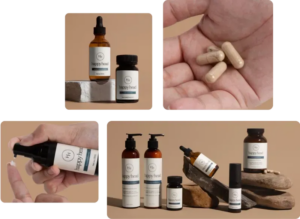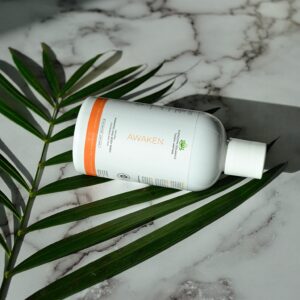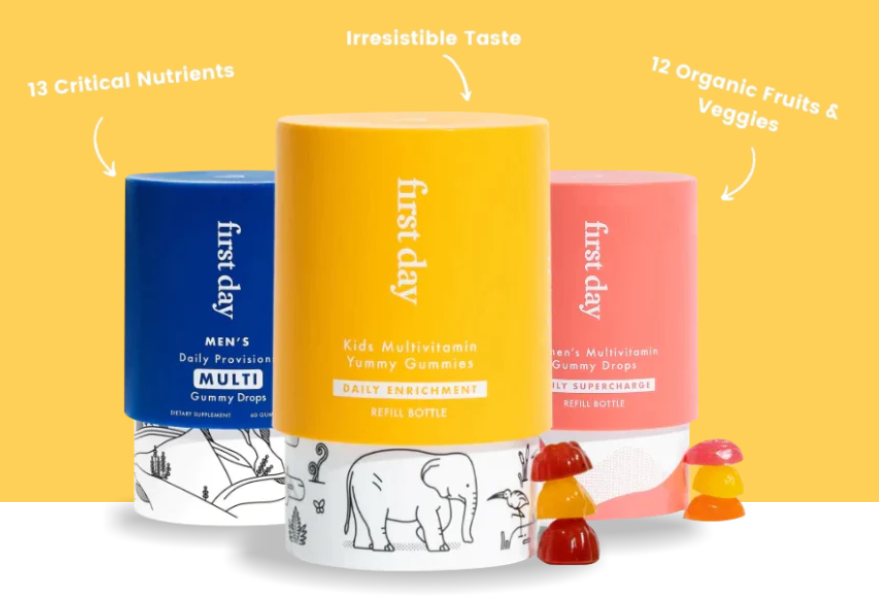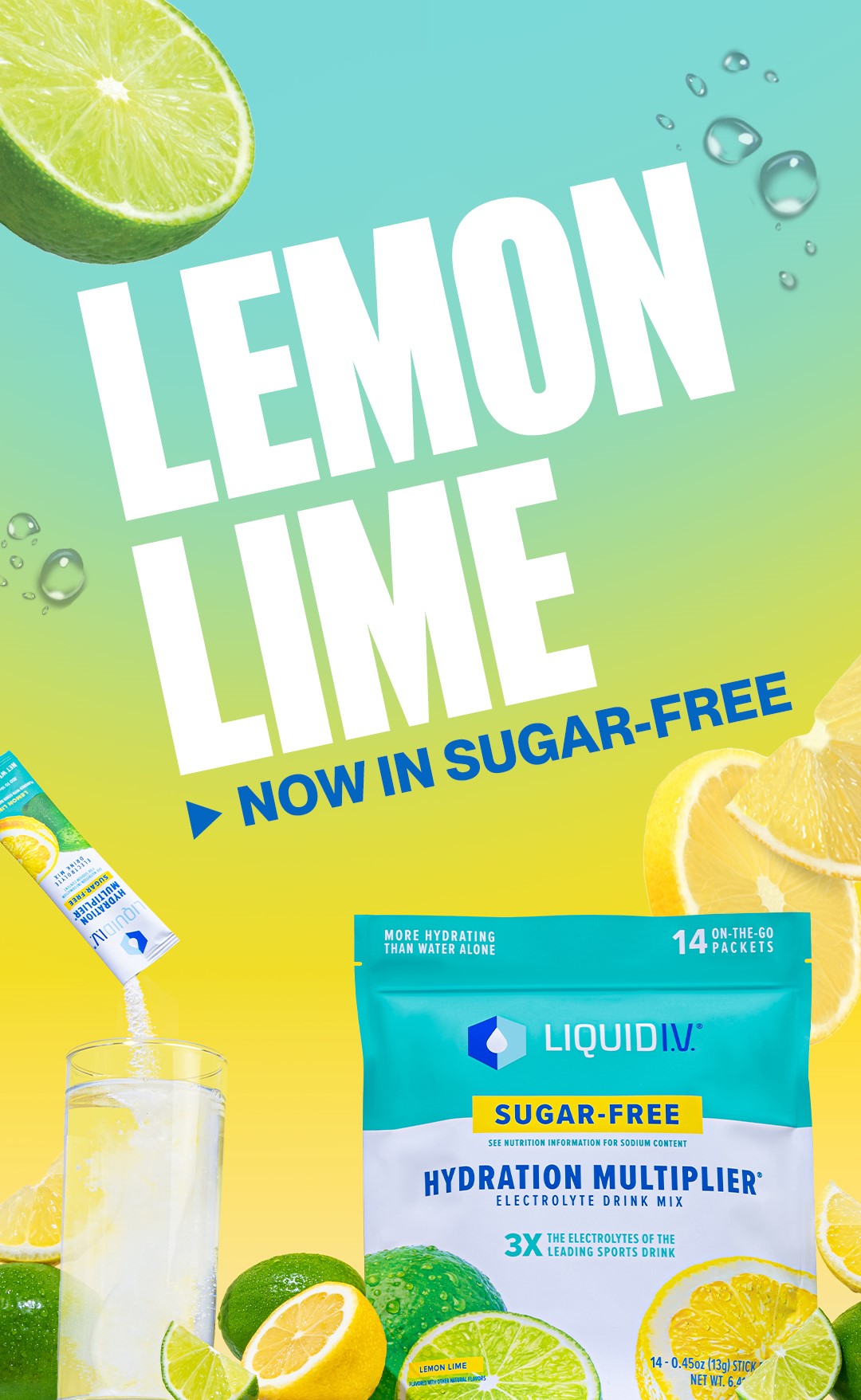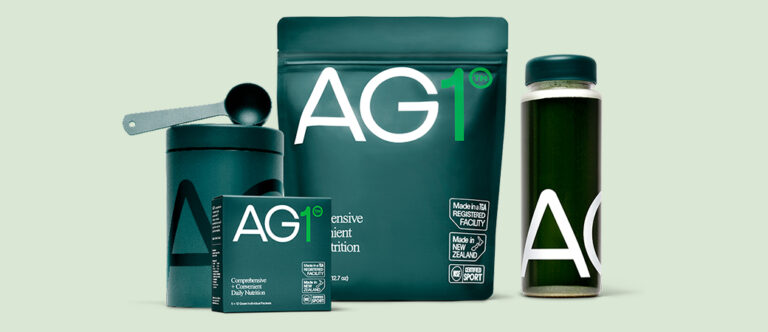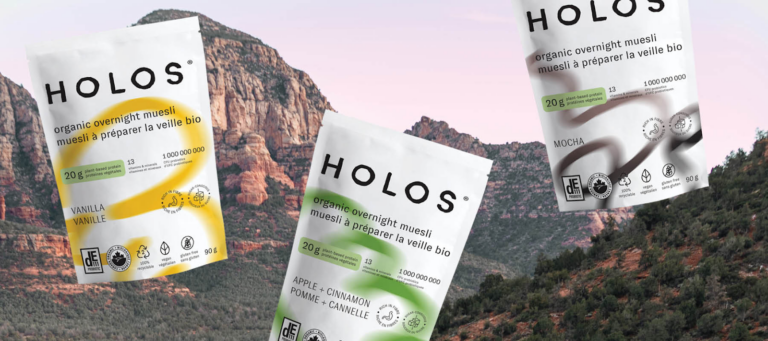About Seed Synbiotic
Seed Synbiotic is one of the most trendy probiotic brands on the market today. This is likely because they have a higher quality product unique from any other available alternative. In addition to this, they have impressively rigorous scientific backing and a smart marketing plan that utilizes social media influencer partnerships. All of this combined has been a recipe for great success for Seed Synbiotic sales.
What truly sets Seed Synbiotic apart from other probiotic supplements is the fact that their producers aren’t simply entrepreneurs looking to make a profit with a great product. The company that created Seed Synbiotic is actually a research company specializing in microbes and their human and environmental applications.
Seed Synbiotic exists under the larger parent company known as Seed Health. The research company has world leading scientists in the fields of microbiology, immunology, genetics, metabolomics, gastroenterology, pediatrics, molecular biology and more. Their scientific board consists of doctors, authors and researchers as well as scientists, with many of them holding prestigious positions at the likes of Caltech, MIT, National Institutes of Health, Harvard, Stanford, Cleveland Clinic and many other highly reputable organizations.
Their mission isn’t only to create an effective probiotic product, but more generally to use research and technology to improve human health alongside the vitality of environmental ecosystems. Some of the areas SeedLabs (the research department of SeedHealth) is working on include developing products for women’s health matters, anxiety disorders, acne, IBS treatments and more.
While these haven’t fully developed into marketable products just yet, it’s clear that the mission of SeedHealth extends far beyond their currently available probiotic products. They aim to use microbes in innovative ways to improve the world around us.
Seed Health’s Story
Seed Health was created in 2015 by tech entrepreneur Ara Katz and microbiome entrepreneur Raja Dhir in Los Angeles, California. It’s classified as a health and life science company with Seed Synbiotic being their first product.
Seed Health began when cofounder Ara Katz became inspired by her pregnancy and breastfeeding experience to understand the importance of microbes and how they impact human and environmental health. She utilized her impressive business background to gather and mobilize top scientists in relevant fields across the globe. After 8 years, the company has now expanded to include a wide range of microbe research projects.
Seed Synbiotic Products Review
Seed Health currently only has two products. They are DS-01 Daily Capsules for adults and the PDS-08 Pediatric Daily Supplement for kids and teens. Both products draw from the same rich scientific backing with the pediatric version containing fewer bacterial strains and a kid-friendly powder format as opposed to the adult’s capsule form.
The adult capsules are recommended to be taken everyday for gastrointestinal and full body health. They’re appropriate for anyone over the age of 17. The capsules are vegan, gluten-free, dairy-free, soy-free, nut-free, shellfish-free, sesame-free, glyphosate-free, corn-free, and free of binders and preservatives. This makes them appropriate for a huge number of dietary restrictions and allergies.
The kids powder prebiotic supplement is intended for ages 3-17, and it’s also completely free of over 20 different common allergens including dairy, gluten, soy, corn, sesame seeds, soy, and nuts (almond, brazil, cashew, hazelnut, macadamia, peanut, pecan, pine, pistachio, and walnut). It’s also sugar-free, glyphosate-free, and contains no preservative or binding ingredients.
These factors make both Seed Synbiotics products extremely usable for almost anyone. Aside from individuals with medical issues that involve a compromised immune system, probiotics are generally well-tolerated and the strains used by Seed are especially gentle and unlikely to cause any gastrointestinal discomfort.
Pros and Cons
The Pros
The pros of taking Seed Synbiotic are many. It can help improve gastrointestinal health, nutrient absorption, gut barrier function, immune health, skin appearance, and cardiovascular health with regular use (1). Other probiotics may claim to do the same thing, but unfortunately it’s fairly common for those alternatives to either be less effective, or completely ineffective (2).
The amount of attention and rigor put into formulating the types of bacterial strains used in Seed’s products, and then the applications of bio fermentation technology to ensure maximum viability of the final product are unmatched. Most brands that sell probiotics sell a host of other supplements, and they simply outsource their product formulations.
Having their own top on the world class research team on deck is unique to Seed, and it shows in their superior products. This also means Seed Synbiotic products are safer to take than other probiotic alternatives.
A final factor in Seed’s favor is their commitment to a reduced environmental impact. They ship their products in glass bottles on the first order and then each following subscription comes in a minimally packaged refill container. The sister company Seed Labs is also conducting research to improve the health of specific ecosystems using microbes which is something no other probiotic company can claim!
The Cons
Despite being effective, convenient and environmentally friendly, Seed Synbiotic does have a few drawbacks. The most obvious one is the price. Both the kids version and the adult version are $50 USD per month. They offer free shipping within Canada and the US, but orders outside of these countries will also have to pay a $10 USD flat shipping rate on top of this for each order.
This is certainly more expensive than the average probiotic supplement, but arguably the value per dollar is still greater since Seed Synbiotic is far more effective than all of its alternatives.
The final drawback isn’t necessarily about Seed Synbiotic itself, but more so on probiotics as a whole. Many individuals won’t see any noticeable effects from taking them. This doesn’t mean they aren’t doing anything to improve health, but it can certainly make someone question whether the supplements are worth the money.
Some people benefit more noticeably from probiotics than others, so there’s an argument to be made that they aren’t a requirement for good health if someone is already generally well and consumes a diet naturally rich in prebiotics and probiotics already.
Seed DS-01 Daily Synbiotic Review
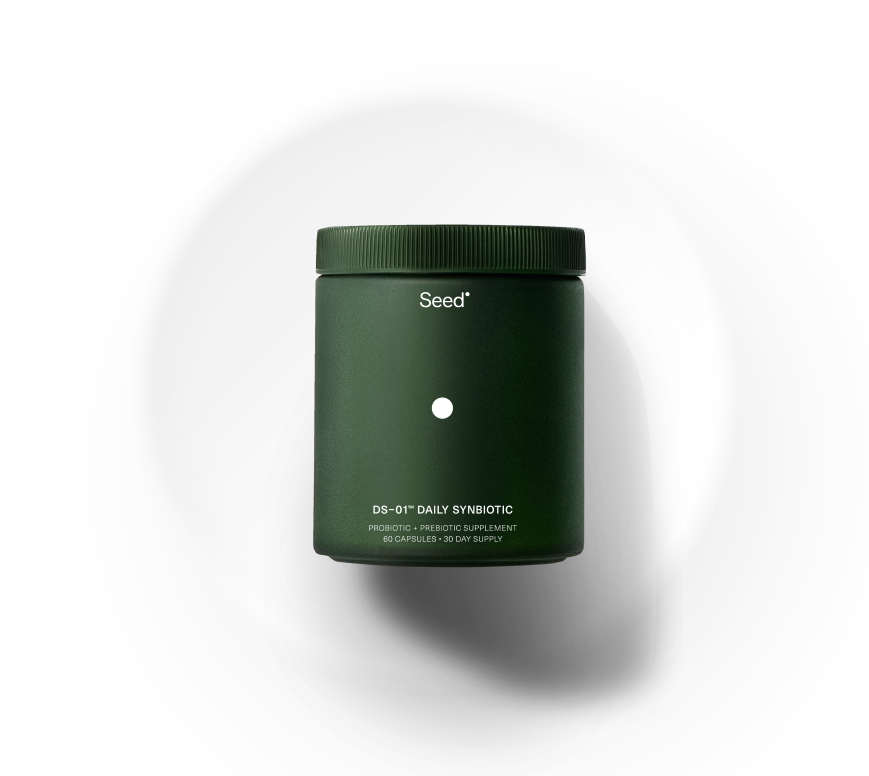
The Seed Synbiotic DS-01 product contains 60 capsules which is enough for a 30 day supply. It has 24 different probiotic strains and 53.6 Billion AFU which stands for Active Fluorescent Units. Researchers obtain this measurement by using a flow cytometer instrument to label viable cells with fluorescent markers. You may notice that other brands generally use the unit CFU instead, but this is a less precise way of measuring viable probiotic cells, making Seed’s claims more reliable (3).
The other ingredients of the capsules are Indian pomegranate, chlorophyllin, hypromellose, fermented gellan gum, organic rice fiber, organic rice blend extract and water. Some of these ingredients serve as the prebiotic component of the supplement.
They essentially act as food for beneficial bacteria in the gut to help with their proliferation (4). The Indian pomegranate is rich in polyphenols for this purpose, and the rice based ingredients are high in important prebiotic fiber.
Another relevant feature of the capsule shell is its well-tested ability to survive digestion to deliver viable probiotics far enough into the digestive tract to be helpful. The capsule shells have been tested with stimulated digestion with exposure to stomach acid, bile salts and digestive enzymes and they boast an impressive 100% survival rate.
Seed’s product testing doesn’t end there however. They also subject their capsules to third-party testing for over 400 allergen and pesticide residues. This makes them extremely safe and contaminate free. The capsules are also heat, moisture, and light protected which means they can be safely shipped without degradation to the product from temperature fluctuations, and that they don’t need to be stored in the refrigerator like many other comparable products.
The quality of Seed’s Synbiotic capsules are unmatched, and the efficacy of the product is also rare in the world of probiotics. Part of what makes it such an intelligent formulation is not just the carefully selected strains and smart delivery system, but how the combination of probiotics and prebiotics together work synergistically (hence the name synbiotic) to enhance each other’s beneficial effects.
The prebiotics used are non-fermented which means they’re compatible even for those with digestive issues. The supplements align with the frequently utilized FODMAP diet, which healthcare professionals often recommend for IBS patients.
Other reasons some people may be hesitant to take probiotics often include pregnancy and interactions with other supplements and medications. Luckily, Seed Synbiotic doesn’t appear to cause any concerns for pregnant or breastfeeding women, though their website does recommend checking in with a doctor or other healthcare professional first as a precaution.
Similarly, there doesn’t appear to be any known interactions with other supplements or prescription medications, so Seed should be safe for anyone to take. Once again however, it’s wise to talk with a healthcare practitioner beforehand just in case.
All facts considered, the Seed Synbiotic capsules appear to be the absolute best on the market. Seed’s website doesn’t directly post reviews, but the internet is rife with countless anecdotal glowing reviews.
Seed PDS-08 Pediatric Daily Synbiotic Review
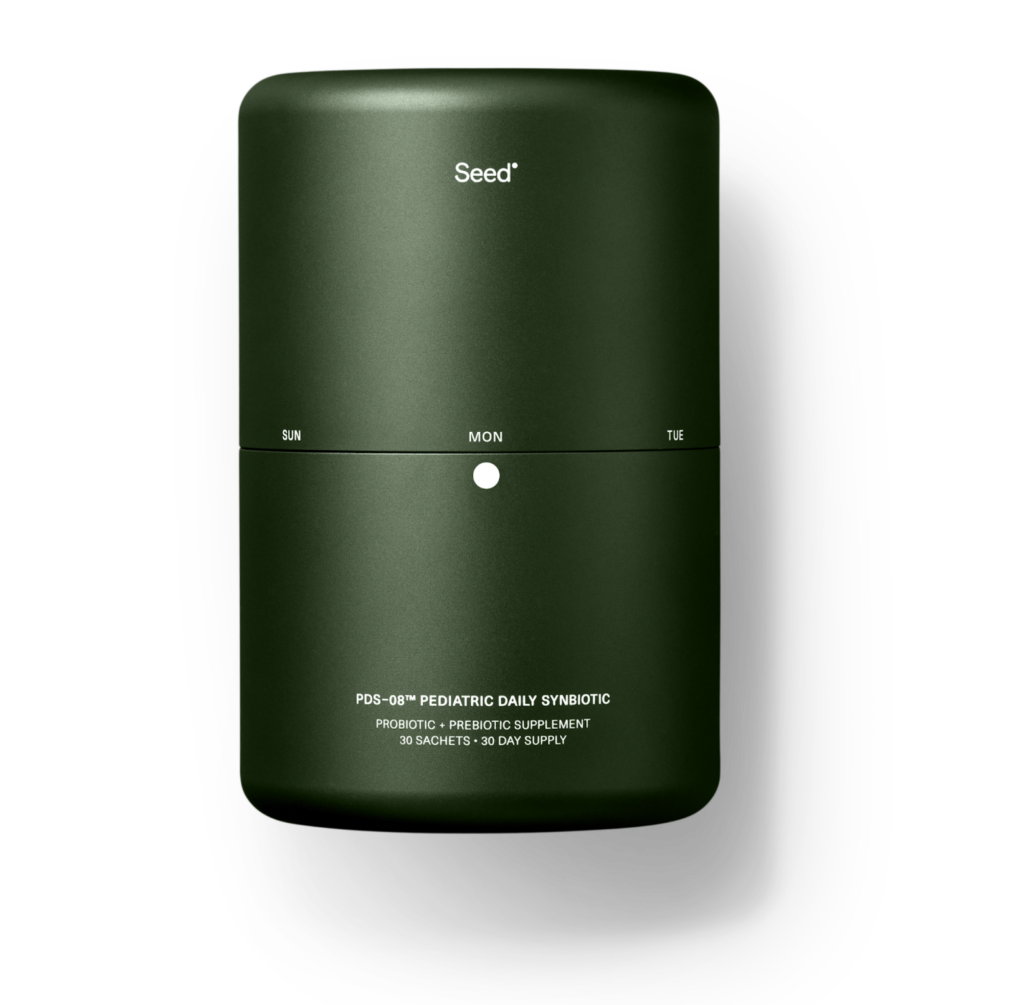
Seed Synbiotic’s second product is their child friendly powder supplement. It contains many of the same bacterial strains as the adult capsules with a few key differences. Instead of targeting cardiovascular health, they contain strains with therapeutic benefits for respiration health, as well as the shared positive health outcomes aimed at improving gastrointestinal wellbeing, immunity, and skin.
There are a few other differences between the product formulations as well. The powder supplement doesn’t contain the same non-microbe ingredients as the capsules. It instead has glycerol fatty acid esters which help to encapsulate certain probiotic strains in their powder form to help deliver them deep into the digestive tract.
Finally, the most obvious difference is the decision to formulate the product into a powder form over capsules. They did this to make the product more easily tolerated by children. Instead of having to swallow large pills everyday, they can simply consume the powder mixed into a drink, smoothie or yogurt without any noticeable difference in taste or texture.
The powder comes with 30 pre-portioned sachets in a container with a built-in and fun to use sliding tracker to mark each day. The following orders on a monthly subscription will just contain 30 refill sachets.
On top of the microbe strain contents, the supplement is also purposely high in fiber since it’s common for children and teens to be low in this nutrient. An astounding number of children in the US don’t reach their daily recommended fiber intake which can result in impaired gut health since it’s such a vital nutrient for the survival of beneficial gut microbes (5).
Dietary fiber is rich in most fruits and vegetables, but children are notoriously picky when it comes to eating enough of these foods. Their children’s formula of Seed Synbiotic can therefore help fill in this essential dietary gap while providing additional benefits to overall health from the therapeutic applications of the microbes.
Final Analysis
Overall, it’s clear that Seed Synbiotic is revolutionizing the world of probiotics, and it appears that their mission doesn’t end there. Hopefully we can expect to see them develop more products using advanced technology to capture the therapeutic benefits of microbes in the next few years. They’re certainly a company to watch.
Where to Buy Seed Synbiotic
Customers can currently purchase Seed Synbiotic products only online directly from their website. They only sell their products through a monthly subscription, but it’s free and easy to cancel anytime. There are many discount codes floating around the web available from influencer partners, and they also offer 20% off the first order when you sign up for their email list.
Alternatives
There are truly no other products quite like Seed Synbiotic. Most probiotics are decently expensive, so it seems Seed Symbiotic is of better value since it’s within the average price point, but is of far higher quality than its competitors. Regardless, here are a few other options to look into.
Athletic Greens – A probiotic + prebiotic green powder – you can read our in-depth review of Athletic Greens Review here
Cymbiotika – Probiotic + prebiotic capsules
Thorne – Probiotic capsules
Frequently Asked Questions
Seed offers a 30-day risk free guarantee where you can request a full refund within 30 days of purchase if you’re not satisfied with their product.
Humans are hosts to trillions of microbes that interact synergistically with the human body, each benefitting the other. However, many factors of modern life have disrupted this relationship. Alcohol, excessive antibiotic use, poor dietary habits, chronic stress and more cause harm to the gut flora. This impacts digestion, inflammation, nutrient absorption, and mental health which means some support from a probiotic can help rebalance your microbes and improve those areas.
Digestive ease can take effect in as little as 24 hours. You may feel less bloated and have more regular movements. Other benefits will generally take much longer and happen slowly over time.
Final Takeaway
The bottom line we’ve uncovered from this Seed Synbiotic review is that Seed should be considered by anyone wanting to improve their digestive health.
It’s the safest and most effective option on the market, and it comes in a convenient subscription model which makes acquiring your daily dose a cinch.
Embark on a holistic health and well-being exploration with these popular brands:
Article Sources
(1) Seed Health. Probiotics 101. Published 2023, Accessed July 2023. https://seed.com/cultured/probiotics-101/
(2) Tobias A. Oelschlaeger. Mechanisms of probiotic actions – A review. Published Jan 2010. Accessed July 2023. https://www.sciencedirect.com/science/article/abs/pii/S1438422109000861
(3) Scott A. Jackson. Improving End-User Trust in the Quality of Commercial Probiotic Products. Published April 2019. Accessed July 2023. https://www.frontiersin.org/articles/10.3389/fmicb.2019.00739/full?sfns=mo
(4) Janina A Krumbeck. Prebiotics and synbiotics: dietary strategies for improving gut health. Published March 2016. Accessed July 2023. https://journals.lww.com/co-gastroenterology/Abstract/2016/03000/Prebiotics_and_synbiotics__dietary_strategies_for.9.aspx
(5) Theresa A. Nicklas. Dietary Fiber Intake of Children and Young Adults: The Bogalusa Heart Study. Published Feb 1995. Accessed July 2023. https://www.sciencedirect.com/science/article/abs/pii/S0002822395000496


